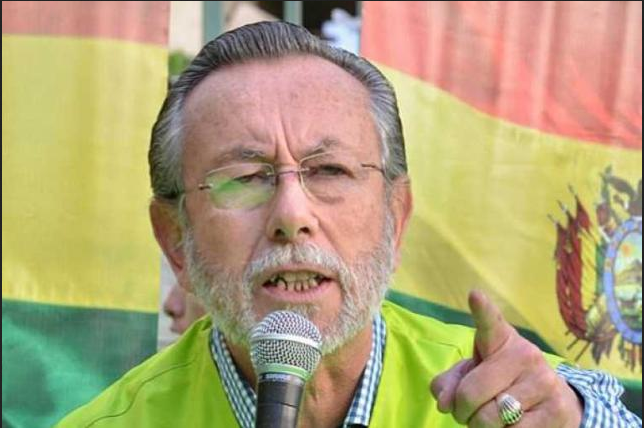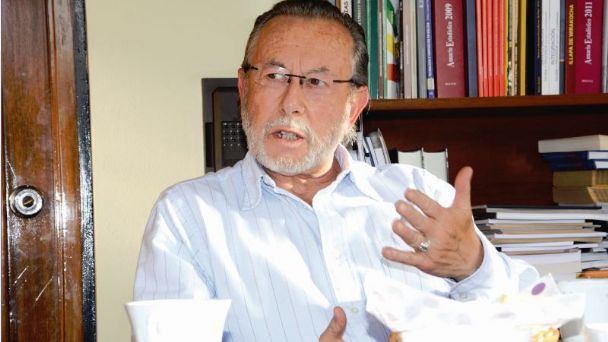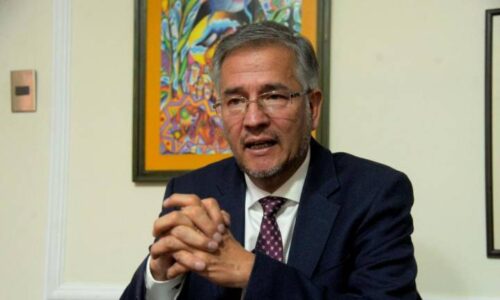

Lawyer, former Parlamentarian and Mayor of La Paz
“The total control of all State Bodies by the ruling party (…) has left the vote as the only surviving element, but under technical, institutional, and legal conditions that make it nominal, since the citizen’s will and sovereignty are manipulated; (…) in the 2020 electoral process the true results were ignored (…) subjecting the citizens to the will of the political party, which under current conditions will never lose an election (…).”
Rosario Baptista C. – Former member of the Supreme Electoral Tribunal
22 November 2021
Rosario Baptista: a call for the rescue of the Plurinational Electoral Body (OEP)
“The total control of all State Bodies by the ruling party (…) has left the vote as the only surviving element, but under technical, institutional, and legal conditions that make it nominal, since the citizen’s will and sovereignty are manipulated; (…) in the 2020 electoral process the true results were ignored (…) subjecting the citizens to the will of the political party, which under current conditions will never lose an election (…).”
This is what the lawyer Rosario Baptista affirms in her resignation letter, which is, at the same time, a very serious denunciation not only against the MAS Government but against the Supreme Electoral Tribunal (TSE) itself, now placed in the dock.
The seriousness of what Baptista affirmed will surely be supported, in the coming days and weeks, by data, evidence, or at least indications that the former Tribunal member, who was an integral part of the Supreme Electoral Tribunal (TSE) for two years, has in her possession, and who, at least three times, has put forward her dissent regarding the handling of the Plurinational Electoral Body (OEP), especially, in regards the Electoral Register.
However, we should not wait for this evidence, which the former Tribunal member must transmit to us, to take initiatives and face what is a deep fissure in the credibility of the Electoral Body that can crumble its precarious structure and, with it, the democratic stability that is based on the majority popular will expressed in the vote, as an essential political right, whose safeguard is in the hands of the Supreme Electoral Tribunal (TSE), today seriously questioned.
For this reason, because an immediate and true institutional reorganization is required, the statement made by Óscar Hassenteufel, on behalf of the Electoral Body, “vehemently rejecting the reckless and fanciful assertions of former Tribunal member Rosario Baptista” does not seem the best response to the denunciation. As if the national political context and the conduct of the ruling party were not precisely that of the authoritarian exercise of power and the permanent deployment of hegemonic actions that today try to silence the parliamentary minority, which have absolutely subordinated the judicial body and which they try to eliminate, through judicial persecution, the dissent of the departmental and municipal autonomies.
Rather, what is fanciful is to believe that we enjoy the rule of law, independence of powers, democratic institutions, and the full validity of constitutional rights and guarantees.
For this reason, the announcement of the electoral member Francisco Vargas seems more appropriate that the “biometric platform of the electoral register will be updated with a budget close to 30 million bolivianos,” but that update is not enough at all. There are better voices such as those of Comunidad Ciudadana that proposes the formulation of a new electoral register, which should at least oblige the immediate promotion of an external and international audit of the electoral register, to verify its integrity, to correct its deficiencies, or to effectively carry out a new electoral registration about which there is no doubt.
If the biometric basis of the electoral registry of the voting population is in doubt, what is in question is popular sovereignty, enshrined in Article 7 of the Constitution as a State principle and fundamental value, from which “emanate, by delegation, the functions and attributions of governmental bodies (…).” And the popular sovereignty of the vote is under the custody of the Plurinational Electoral Body (OEP), which must become transparent.
For this, a plural, impartial and immediate investigation must be opened by the commission provided for in subsection 19 of Article 158 of the Constitution, to which the lawyer Baptista must be summoned, to whom all personal guarantees must be provided, so that she can explain to the country the components and reasons also for this other blunt statement of her: “The Supreme Electoral Tribunal is kidnapped by interests unrelated to justice, democracy and political rights (…) it is a Body that is neither independent nor impartial (…).” If there is evidence of this kidnapping –which seems to have started in July of this year, with the illegal removal of the departmental electoral members–, it is clear that citizen and popular attention will have to be focused on RESCUE because, in the past, a well-known autocrat affirmed that whoever defines an election is not the one who votes, but the one who counts the votes.




